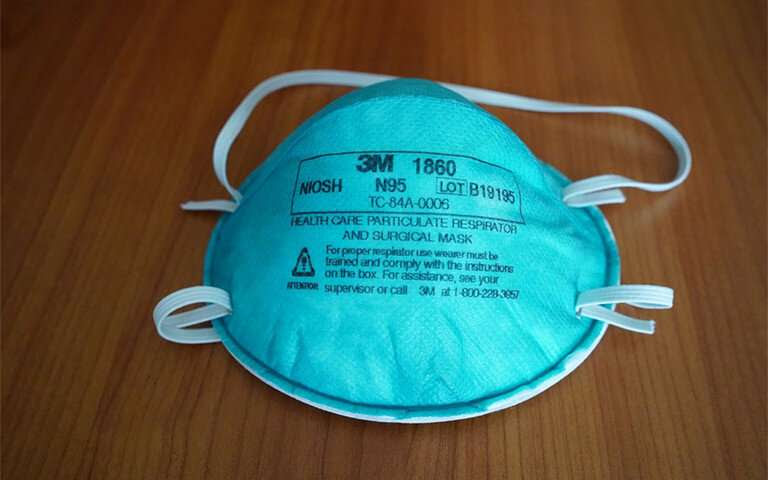by Harvard University
The growing severity of the COVID-19 pandemic and challenges in the supply chain have resulted in severe shortages of N95 masks and reports of frequent mask reuse. This practice poses serious safety risks to healthcare workers. To help decision-makers develop back-up procedures that are as safe as possible, researchers from Harvard, Stanford, MIT, UC Berkeley, and other institutions teamed up to evaluate existing N95 decontamination methods and plot a practical course forward for implementing them.

The consortium issued a report detailing the strengths, weaknesses, and gaps in application of three methods: heat, ultraviolet light (UVC), and vaporized hydrogen peroxide (VHP) treatment. The report can be found on the consortium website, n95decon.org. Harvard’s coalition of the willing is led by John Doyle, Henry B. Silsbee Professor of Physics and co-director of the Harvard Quantum Initiative.
“Our goal is to provide valuable information to help public health officials make the best possible decisions when they must resort to decontaminating and reusing masks rather than replacing them between patients,” said Doyle. “Each point of care will have very specific circumstances and will need to adapt—we are putting our heads together to ensure their operating procedures are as safe and efficient as they can be.”
According to Doyle, the consortium came together organically, motivated by the need to provide overwhelmed health officials with reliable, accessible scientific information. Harvard volunteers include John Doyle, Adam Cohen, Louis Baum, Zack Lasner, Larissa Little, Andrew Preecha, Loïc Anderegg, Cole Meisenhelder, Yicheng Bao, Kezi Cheng, Alex Frenett, Robert Gustafson, Clare Ploucha, and Adam Kryskow.
“It has been inspiring to see Harvard administrators and researchers, including graduate students and professors, jump into this service with such energy, thought and skill,” said Doyle.
Andrew Preecha, a research assistant in Adam Cohen’s laboratory, master’s student at the Harvard Extension School, and one of Harvard’s 14 volunteers on the project, will be conducting heat-decontamination experiments.
“We’re looking at the effectiveness of using sterilization equipment that hospitals already have to get more use out of these masks,” he said. Similar experiments are being carried out elsewhere on the effectiveness of other approaches.
The N95DECON report provides important details, links to protocols and commercial services, and quick-reference infographics to help health officials assess which methods are best for their particular situation.
As the N95DECON scientists release this first wave of information, they are carrying out new decontamination experiments on N95 masks to clarify their safety and efficacy issues. This new knowledge will be used to create toolkits that provide a scientific basis for choices institutions make as they update their standard operating procedures and submit them to the FDA for approval.

Leave a Reply